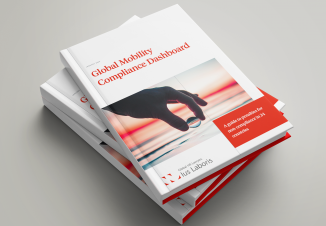Ukrainians arriving in Germany
Ukrainian citizens are able to enter Germany without a visa. Even though they are currently entering Germany by land via the Schengen borders (e.g. Poland) and there are usually no border controls, they legally require need a biometric passport which meets the requirements of the International Civil Aviation Organisation (ICAO). However, legislation on this is planned.
Short-term residence
After entering the Schengen area, Ukrainians are allowed to stay in the Schengen area for 90 days in any 180-day period. The EU Schengen calculator simplifies calculation of the permitted visa-free stay. The stay can be extended by a further 90 days by application to the local foreigner office where the Ukrainian citizen is staying in Germany (under s40 of the German Residence Regulation); Article 20 paragraph 2 of the Convention Implementing The Schengen Agreement (SDÜ); and the German Federal Interior Ministry Communication).
The federal states can provide for an automatic application-free extension by a general decree (Berlin, for example, has introduced an extension until 31 May 2022 under certain conditions). Please note: during visa-free stay, employment in Germany is not permitted.
Long-term residence and work
For a longer-term stay, Ukrainian citizens need a residence/work permit (Aufenthaltstitel), and in order to work, they need a residence/work permit which explicitly allows them to perform their specific employment (s4a of the Residence Act). Ukrainian citizens have the following options to obtain a permit:
- In the next few days, the Council of the EU could adopt a decision under the EU Directive, on temporary protection in the event of a ‘mass influx’, under which displaced Ukrainian citizens will be granted temporary protection for an initial period of one year. The Commission has already submitted a proposal for this. We therefore do not currently recommend submitting an asylum application. Ukrainians could then apply to the foreigners authorities for a residence permit according to s24 paragraph 1 of the Residence Act; however, employment would still require an additional permit issued by the foreigner office.
- Previously, Ukrainians who otherwise fulfil the requirements for a residence permit had to apply for a national visa at the German embassy in Kyiv before entering Germany (s5 of the Residence Act). The Federal Interior Ministry currently considers this to be unreasonable and has therefore instructed the foreigner offices to also allow applications after arrival in Germany. However, please note that a registration certificate is usually required for this, which is why Ukrainian nationals should register with the responsible registration office after arrival.
- The Federal Foreign Office Visa Navigator can be used to search for relevant visas. For qualified professionals (whether Ukrainian university degrees are recognised can be checked in the Anabin database, only available in German), the EU Blue Card or a residence permit for professionals with an academic degree (s 18b of the Residence Act) are possible options. Further information can be found in the German Federal Interior Ministry FAQ on entry from Ukraine.
German employers with (conscripted) Ukrainian employees
If German employers already employ Ukrainian nationals who are called up for military service, the question of what should happen to the German employment relationship comes up. Due to the threat of punishment for failing to respond, it is to be expected that there will be a high pressure to act.
The legal situation is unclear, which is why the parties are well advised to agree by mutual consent, on, for example, a (temporary) suspension of the employment relationship. Please note the following:
- Foreign military service does not lead to an automatic termination of the employment relationship.
- There is no legal obligation to suspend employment. In addition to German conscripts, the corresponding German protection regulations (s16 of the Occupational Health and Safety Act) only apply to draftees from countries which are signatories to the European Social Charter 1961. An extended application to later versions of the Charter, to which Russia and Ukraine are also signatories, is not (yet?) legally established.
- Ukrainian nationals will, unless this is excluded in their employment contract, be able to claim a temporary impediment to performing their work (s616 of the Civil Code) which prevents the employer from terminating the employment relationship for a reasonable period of time. The German Federal Labour Court once considered two months of absence to be reasonable. Due to the unclear development of the situation in Ukraine, hardly anyone will be able to give a prognosis at the moment.
For more information about immigration



